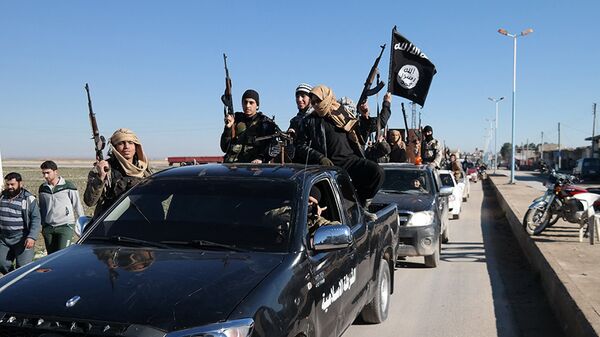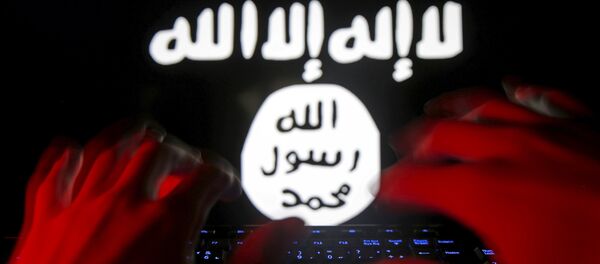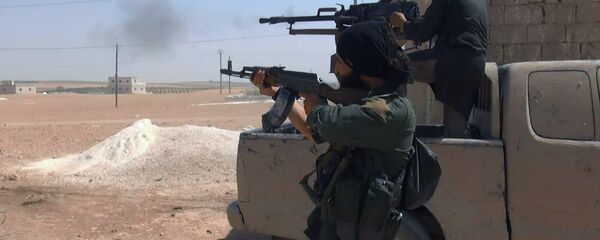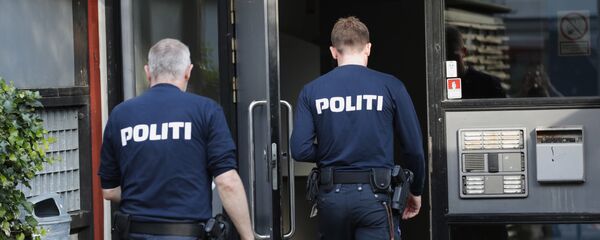Radio Sputnik talked about the findings of the Swedish terrorism watchdog with Nikos Passas, professor of criminology and criminal justice at Northeastern University, and co-director of the Institute for Security and Public Policy.
Sputnik: What do you make of this hawala payment system that was mentioned in the report? How do they operate?
Nikos Passas: This is a system that originated in South Asia; a similar network of payments was originated in China. Those two systems have become global in recent decades.
Like any other financial institution, it has also been used by people who break the law, including extremists. The payments are made in the following way — I'm sending money from my home country to, let's say, Pakistan and I contact an intermediary at home who gives me a very favorable exchange rate and delivers the funds in local currency in about 24 hours or less if urgent.
READ MORE: Human Rights Watch Blames Iraqi Military for Disappearing of Dozens of Sunni
The payment instructions that I give are communicated by anything from email, fax, WhatsApp or other messaging [platforms] to a counterpart in the destination country who makes the payment. Because flows of money go in multiple directions, hawala operators, the intermediaries that we're talking about, at the end of the day calculate how many payment instructions they've sent, and as they engage with counterparts around the world they also receive instructions for payment.
If the flows are symmetrical or if people know each other and don't need to settle up what amounts are owed, then things go and accumulate, there are running balances that each [person] sends.
But the point is that it is a very efficient payment method; it's not banking, but a money transfer method and it's used by everyone ranging from corporations and even sometimes government entities, international organizations, companies, small traders, remittances or individuals. And, of course, in many places because it's the only available means of financial transfers or by far the cheapest, most convenient and fastest, it is also used by criminals who abuse it.
READ MORE: Iraq Resumes Production at Mosul Oil Field After Daesh Defeat — Oil Ministry
Sputnik: Is it the most common way that this is used? For example, you've gone to England, got an education and you're making money and you send money back home to a little village somewhere in Pakistan or Afghanistan; is that another way that that is used? Is that often used for small payments to send money back home to family?
Nikos Passas: The majority of the customers are, indeed, small operators. It isn't someone who necessarily has gone to a university and is making a lot of money; it could be a taxi driver or a student, it could be anybody.
Dahabshiil that is mentioned in this report is actually a Somalian company and it is the largest remittance company in Africa; it is described as hawala banking, but you have to understand that this is actually an institution that is licensed to operate in the countries where it operates.
Sputnik: How does this differ from other transfer systems? There used to be just Western Union, but now there're so many of them that are offer lower rates, faster and better service and they service areas where there is no banking available.
Nikos Passas: That's correct, they do; and sometimes it is door to door and it's very culture-bound because people know each other. The mechanics aren't very different from what Western Union does; it's just that this is a much faster and much cheaper service that is used, and it operates in places where neither Western Union operated nor banks have offices.
In fact, it is traceable because when you have these networks with multiple payments made on a daily basis, the people that are doing their business have to actually keep track of what they're doing, to whom they're making payments, from whom they receive money and who are the counterparties.
There are, in fact, a lot of trails that the investigators can follow in order to find out who the recipients are. In fact, the evidence that is cited in the article shows that there was a receipt in this particular case for the $895.
*Daesh — a terrorist group, banned in Russia
The views and opinions expressed in the article are those of the speaker and do not necessarily reflect Sputnik's position.





